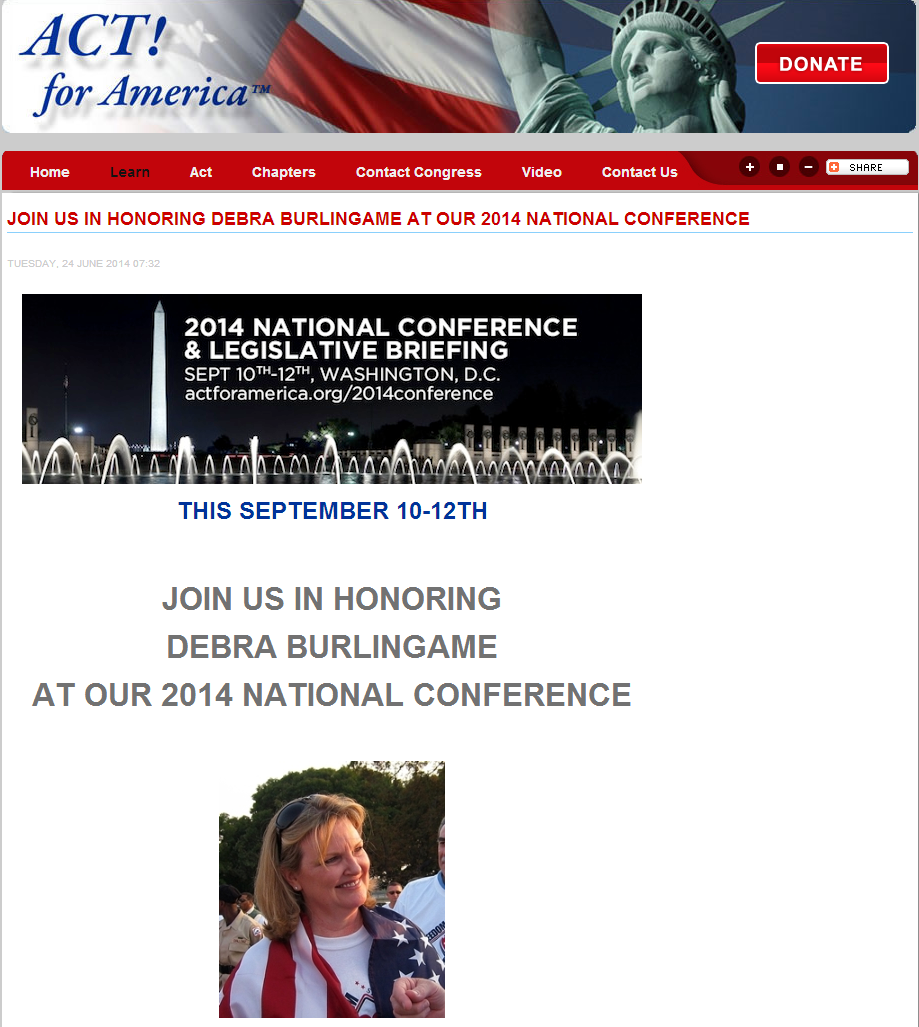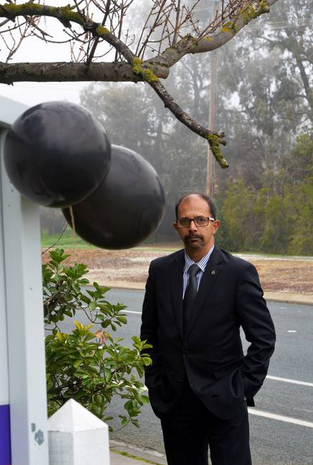 The sinister black balloons started appearing in Bendigo in May. Then 10 days ago, a cluster of them were tied to the home and business of a local councillor who supports the building of a controversial mosque.
The sinister black balloons started appearing in Bendigo in May. Then 10 days ago, a cluster of them were tied to the home and business of a local councillor who supports the building of a controversial mosque.
The councillor, Mark Weragoda, was born in Sri Lanka and moved to Bendigo in the 1980s. He says the unrelenting and increasingly vengeful campaign against the Bendigo mosque – which has been approved by the council but faces a tribunal appeal – is the first time he has faced racial hatred in the regional Victorian city.
When he spoke to the council in favour of the mosque at a heated meeting the night before he found the balloons, protesters played Middle-Eastern music to try to drown him out. He said the balloons didn’t worry him and he felt sorry for the “minority” groups who opposed the mosque on racial and religious grounds rather than for planning reasons.
A week before, The Bendigo Advertiser received an anonymous email headed “Mysterious black balloons revealed”, which said that by accepting Islam into Bendigo, the community would be “endorsing domestic and child abuse” because under sharia law it was acceptable to “marry off child brides, perform genital mutilation, forbidding [sic] women to express themselves, and not being treated as equal to men”.
The email said: “The misconception that it is ‘racist’ to be against the lifestyle of Islam or Muslims is incorrect as it is not a race, whilst Islam is not a religion and cannot be compared to any other religion as it is an ideology.”
Bendigo’s pro-mosque residents tried to nullify the spectacle of the black balloons – a chilling image, like bunches of dead flowers – by tying coloured balloons around the city. But a metal flagpole flying coloured balloons was torn down at a furniture store in the central business district, while the black balloons’ symbolism of hate and vilification remained.
Until now, it has been unclear who was responsible. The likely answer turns out to be instructive because it helps show exactly how extremist far-right groups from outside have managed to infiltrate and hijack a campaign in country Victoria that, until they got involved, was about planning issues.
Continue reading →

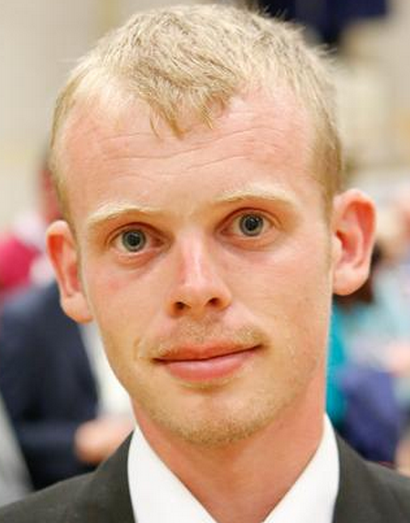 A former Conservative borough council election candidate has lost his membership of the party after a campaign poster from the British National Party appeared on his Facebook page.
A former Conservative borough council election candidate has lost his membership of the party after a campaign poster from the British National Party appeared on his Facebook page.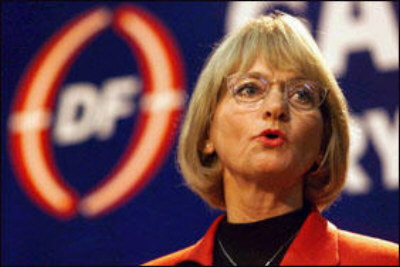 A ban on people wearing clothing that covers their face in public, like a burqa or niqab, may find its way to Denmark following a landmark decision at the European Court of Human Rights on Tuesday.
A ban on people wearing clothing that covers their face in public, like a burqa or niqab, may find its way to Denmark following a landmark decision at the European Court of Human Rights on Tuesday.
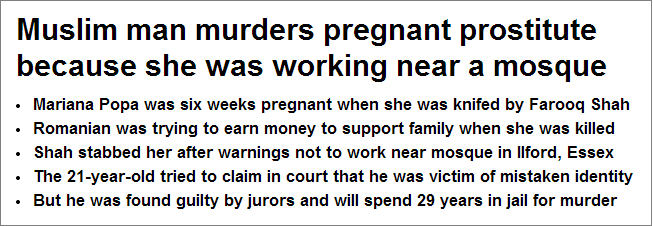
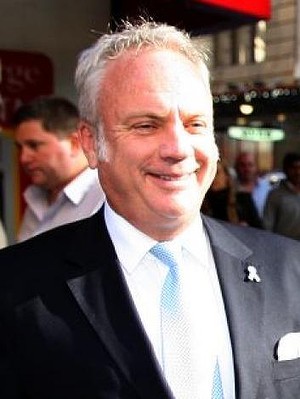 A Sydney radio presenter has been told he will not be filling in a guest slot on 2GB after he called the Prophet Muhammad a paedophile.
A Sydney radio presenter has been told he will not be filling in a guest slot on 2GB after he called the Prophet Muhammad a paedophile. The sinister black balloons started appearing in Bendigo in May. Then 10 days ago, a cluster of them were
The sinister black balloons started appearing in Bendigo in May. Then 10 days ago, a cluster of them were 